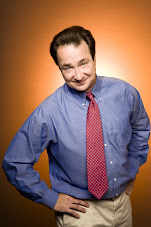 Walt Bogdanich, New York Times Reporter after receiving news that he had won his third Pulitzer.
Walt Bogdanich, New York Times Reporter after receiving news that he had won his third Pulitzer.Business reporters win top honors for stories about tainted toys and counterfeit drugs and toothpaste from China, to the privatization of services to business contractors in Iraq.
Two prizes were awarded for investigative reporting: to Walt Bogdanich and Jake Hooker of The Times, for articles about counterfeit and toxic drugs from China; and to The Chicago Tribune staff, for exposing flawed government regulation of toys, car seats and cribs.
INVESTIGATIVE REPORTING: WALT BOGDANICH and JAKE HOOKER
* Complete Series: A Toxic Pipeline From NYTimes.com
* Times Topics: Walt Bogdanich
INVESTIGATIVE REPORTING: CHICAGO TRIBUNE STAFF
For articles exposuring faulty governmental regulation of toys, car seats and cribs.
* Hidden Hazards: Kids at Risk Series From Chicagotribune.com
INTERNATIONAL REPORTING: STEVE FAINARU
For an examination in the Washington Post of private security contractors in Iraq.
* Private Armies | The Role of Private Contractors in Iraq From Washingtonpost.com
ttp://www.nytimes.com/2008/04/07/business/2008pulitzers-journalism.html?ex=1365393600&en=ae9b8268ab9750c3&ei=5124&partner=permalink&exprod=permalink











